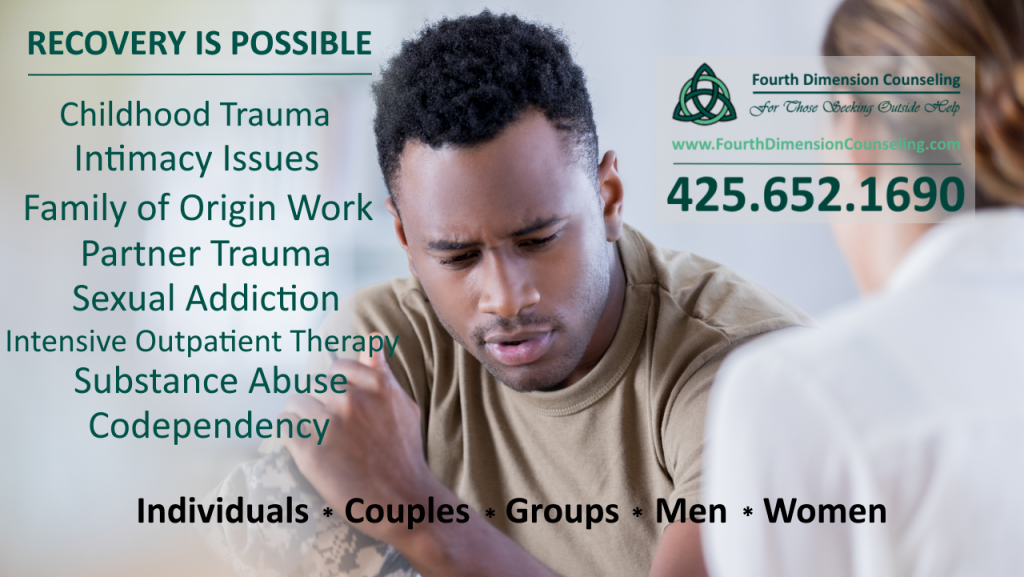Effective Therapy After Addiction Recovery For Addicts & for Their Partners
Written by Rebecca Waterston, MA, LMHCA, CDPT, CSAT-Candidate
The struggle to become sober from substances such as drugs or alcohol, or to become clean from process additions such as gambling, sex addiction and social media or gaming addiction has been talked about at length. We have fantastic addiction programs…of course, there is always a need for more….but these programs help people learn how to live without addiction as a crutch, a coping strategy for life, a way to numb out life’s pain, or as the only ways in which to have fun. It is, however, only the very early stages of this recovery. To possess a solid recovery that stands up to the test of time, life skills are absolutely necessary…many of which recovery addicts have not had contact with previous to recovery.
Learning how to live life contentedly, or as they say in the rooms of Alcoholics Anonymous….to “Live Life on Life’s Terms” is the end goal of successful recovery. Learning skills to slow down and look before leaping, becoming conscious of their own bodies and their body’s messages, and thought-changing, in order to change emotions, are all important parts of recovery.

A great number of recovered addicts have not had healthy examples of ‘doing life, in which they could determine their own personal values and then learn how to set boundaries around those for their own safety and growth. There are a number of tools and strategies that can only begin to be incorporated into life once the addict’s mind and body are clear enough to benefit from them. The best therapy at this stage of recovery is a concentrated time of being observant of self, of others, of society as a whole, of what is available, and what can be changed and what cannot be changed. It is a time of learning new tools for living life and incorporating those little by little into their life through all of the different stresses and changes in life.
For partners of a person who has been steeped in addiction, this is a difficult time for them as well. They hoped everything would be “ok” once their loved one was sober….only to find that it was only the bare minimum and that there were miles left to go. The partner has been dealing with the addiction and the addict and hoping for change. They have then waited patiently, or not so patiently, as the addict does whatever type of treatment period they chose. It has seemed that now would be the time things would be better. But instead, they find that now they have to wait even longer as their loved ones learn themselves and life. This can be a disappointing and frustrating time for the partner. They can be left feeling like everything is always about the addict….even in sobriety and it is a frustrating time, to say the least.
Partners need a lot of support and their own tools for dealing with this time while they learn to stop caretaking the addict and learn to heal themselves even before their relationship is truly healed. They have to begin learning the difference between me and him or her. How much to take on, and how much to expect. They need to be heard for the pain they have been feeling, oftentimes for many years. It can seem unfair that as soon as the addict gets sober, he or she begins to demand equal time in decisions and directions. The co-addict, or partner, has become accustomed to taking care of business by themselves, and there is still a trust level that needs to be built up. How do they give over some responsibilities when they have not yet developed the trust to do so?
At Fourth Dimension Counseling, we are experts in addiction to substance abuse and recovery from all types of addictions. We are also experts at those folks who too often get left behind….the partner or family members. We work with both separately in individual therapy based upon their needs, and together in couple’s counseling to help them navigate uncharted relationship territory. Both deserve the best and fullest support during this transitory time. It is not easy. It never is. But it can be tremendously rewarding when light seeps in where it was formerly just dark.
